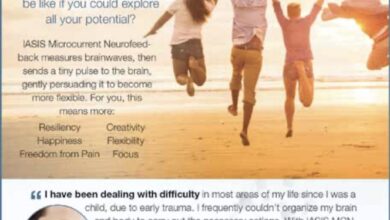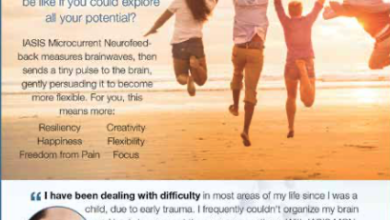mTBI – A New Way to Heal
Perhaps you’ve heard of a common problem that seems to be plaguing our veteran population? The leading cause of lack of function among veterans is Mild Traumatic Brain Injury or mTBI. In 1993, the American Congress of Rehabilitation Medicine (ACRM) generated a standardized definition of MTBI.
MTBI is a “traumatically induced physiological disruption of brain function” which involves at least one of the following:
- Any period of loss of consciousness;
- Any loss of memory for events immediately before or after the accident;
- Any alteration in mental state at the time of accident (e.g., feeling dazed, disoriented, or confused);
- Focal neurological deficit(s) that may or may not be transient
But where the severity of the injury does not exceed the following:
Loss of consciousness of approximately 30 minutes or less
After 30 minutes, an initial Glasgow Coma Scale (GCS) of 13-15
Post-traumatic amnesia (PTA) no greater than 24 hours. This so-called “mild” issue can be extremely debilitating, resulting in emotional disturbances, depression, dizziness, lack of balance, memory loss, and fatigue to name just a few.
Let’s face it, mild brain injuries are very tricky. The person may look normal on the outside, yet claim that their life is not the same since their brain injury. Also, symptoms can be delayed and appear long after the injury. You may know someone who has had this experience. Maybe their injury was due to a sports mishap or a car accident. No matter how it is acquired, an mTBI can be baffling, debilitating and frustrating.
While many mTBI sufferers are wondering “What the heck happened?” to their lives, most of the commonly used MRI scanning technologies can’t even find mild traumatic brain injury.
In a recent, yet unpublished, study at UCSD, a special brain mapping technique called a magnetoencephalography (MEG) was used to map the brains of veterans pre-treatment with Microcurrent Neurofeedback. The pre-scans (which are basically a measure of brain damage) showed abnormal slow waves in the brains of the participants. Following a course of treatment with IASIS Microcurrent Neurofeedback (20 sessions in this study) all the patients showed “a significant reduction in abnormal slow waves”. This means the brain-training treated the cause of the brain injury by successfully repairing the damage.
The most exciting part of this study is that abnormal slow waves correlate to SYMPTOMS that the veterans were suffering. Change brain wavesàreduce or eliminate symptoms. And that is exactly what happened! This history-making study is great news to anyone who suffers from mTBI symptoms due to accident or injury. More than that, it can apply to almost anyone that wants to improve or increase focus, resiliency, productivity, freedom from addictive behaviors, calmness, clarity, well-being, and happiness. Many people who have plateaued with other excellent forms of Neurofeedback also report increased benefits upon completing a course of IASIS MCN.
At Ashland Neurofeedback and Therapy, we are dedicated to helping you regain function and increase your quality of life. Many people feel that they are not living up to their full potential. We want you to be who you really are with an optimally functioning brain. Please see our testimonial from a recent client.




